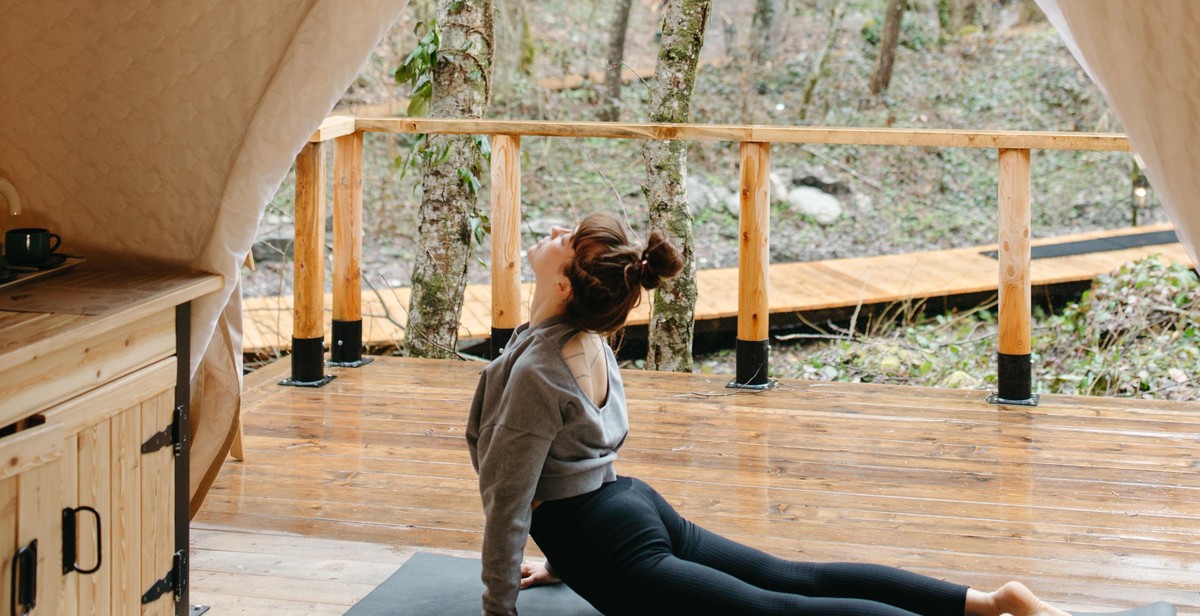How to Practice Self-Care and Prioritize Your Wellbeing
Self-care is the practice of taking care of oneself to improve overall wellbeing. It involves taking care of physical, emotional, and mental health. Self-care is not a luxury; it is a necessity that should be prioritized in our busy lives. Taking care of oneself is essential, as it helps to reduce stress, improve mental health, and boost productivity.
What is Self-Care?
Self-care involves activities that promote physical, emotional, and mental well-being. It includes activities such as exercise, healthy eating habits, meditation, and spending time with loved ones. Self-care is different for everyone, and what works for one person may not work for another. It is essential to find activities that suit your preferences and lifestyle.
Why is Self-Care Important?
Self-care is important because it helps to reduce stress and anxiety, improve mental health, and boost productivity. In today’s fast-paced world, we often neglect our physical, emotional, and mental health. This neglect can lead to burnout, which can have a negative impact on our overall well-being. Practicing self-care can help prevent burnout and improve our overall quality of life.
By prioritizing self-care, we can improve our physical, emotional, and mental health. This, in turn, can help us lead happier, healthier, and more fulfilling lives.
Identifying Your Self-Care Needs
Self-care is the act of taking care of oneself physically, mentally, and emotionally. It is essential to understand that self-care is not a one-size-fits-all approach. Each individual has unique needs, and it is crucial to identify those needs to create an effective self-care plan.
Understanding Your Unique Needs
To determine your unique self-care needs, you must first understand yourself. Start by asking yourself the following questions:
- What activities make me feel happy and fulfilled?
- What are my stress triggers, and how do I cope with them?
- What are my physical limitations, and how can I work around them?
- What are my emotional needs, and how can I meet them?
By reflecting on these questions, you will gain a better understanding of your unique needs and what self-care practices will work best for you.
Creating a Self-Care Plan
Once you have identified your unique self-care needs, it’s time to create a self-care plan. Your plan should include activities that nourish your body, mind, and soul. Here are some self-care practices you can consider:
- Physical self-care: exercise, getting enough sleep, eating healthy, taking breaks, and relaxing.
- Mental self-care: practicing mindfulness, reading, learning new skills, and seeking help when needed.
- Emotional self-care: spending time with loved ones, practicing gratitude, journaling, and therapy.
Remember that self-care is not a one-time thing. It is an ongoing process that requires commitment and consistency. Make sure to schedule self-care activities into your daily routine and stick to them.
| Tip: | Don’t be afraid to experiment with different self-care practices to see what works best for you. You may need to adjust your plan as you go along, and that’s okay. |
|---|

Self-Care Practices to Prioritize Your Wellbeing
Self-care is an essential aspect of maintaining a healthy and balanced life. It involves taking care of your physical, emotional, mental, social, and spiritual needs. By prioritizing self-care, you can reduce stress, increase happiness, and improve your overall wellbeing. Here are some self-care practices you can incorporate into your daily routine:
Physical Self-Care
- Get enough sleep: Aim for 7-9 hours of sleep each night to help your body recover and rejuvenate.
- Eat a balanced diet: Incorporate a variety of fruits, vegetables, whole grains, and lean proteins into your meals.
- Exercise regularly: Find a physical activity that you enjoy and make it a habit to move your body regularly.
- Take breaks: Give your body a break from sitting or standing for long periods by stretching or taking a short walk.
Emotional Self-Care
- Practice self-compassion: Be kind to yourself and practice self-acceptance.
- Express your emotions: Talk to a trusted friend or therapist about your feelings.
- Do things you enjoy: Engage in activities that bring you pleasure and make you happy.
- Set boundaries: Learn to say no and prioritize your needs.
Mental Self-Care
- Practice mindfulness: Take a few minutes each day to focus on the present moment and observe your thoughts.
- Learn something new: Engage your brain by learning a new skill or hobby.
- Take breaks from technology: Unplug from electronics and give your mind a break.
- Get organized: Create a to-do list or schedule to help you stay on track and reduce stress.
Social Self-Care
- Connect with others: Spend time with friends and family who uplift and support you.
- Join a community: Join a group or organization that aligns with your interests and values.
- Practice empathy: Listen actively and try to understand others’ perspectives.
- Communicate effectively: Set clear and respectful boundaries in your relationships.
Spiritual Self-Care
- Engage in spiritual practices: Pray, meditate, or engage in other practices that align with your beliefs.
- Connect with nature: Spend time in nature and appreciate the beauty around you.
- Reflect on your values: Consider what is important to you and align your actions with your values.
- Foster gratitude: Practice gratitude by focusing on the positive things in your life.
Incorporating Self-Care into Your Daily Routine
Self-care is essential for our physical, mental, and emotional wellbeing. However, it can be challenging to prioritize self-care when we have busy schedules and multiple responsibilities. Here are some tips for incorporating self-care into your daily routine:
Making Time for Self-Care
The first step in incorporating self-care into your daily routine is to make time for it. This can be as simple as setting aside 10-15 minutes each day to do something that makes you feel good. It can be taking a relaxing bath, going for a walk, or reading a book. Whatever it is, make sure it’s something that you enjoy and that helps you relax.
Setting Boundaries
Another important aspect of self-care is setting boundaries. This means saying no to things that don’t align with your values or that you don’t have time for. It also means setting limits on how much time and energy you give to others. By setting boundaries, you can create more space for self-care in your life.
Saying No
Saying no can be difficult, especially if you’re someone who likes to please others. However, saying no is an important part of self-care. It means prioritizing your needs and your wellbeing over the needs of others. Remember that it’s okay to say no, and that it’s not selfish to prioritize your own needs.
Prioritizing Self-Care
Finally, it’s important to prioritize self-care in your life. This means making it a non-negotiable part of your routine. Instead of seeing self-care as something you do when you have time, make it a priority. Schedule it into your day, and treat it as you would any other important appointment or task.
- Make time for self-care each day
- Set boundaries to create more space for self-care
- Learn to say no to things that don’t align with your values
- Prioritize self-care by making it a non-negotiable part of your routine

Challenges and Solutions for Practicing Self-Care
While self-care is essential for maintaining a healthy mind and body, it can be challenging to prioritize it amidst our busy schedules. Here are some common challenges people face when trying to practice self-care and some solutions to overcome them:
Common Challenges
- Lack of Time: Many people find it difficult to take time out of their busy lives to practice self-care.
- Feeling Guilty: Some people feel guilty about taking time for themselves, especially when they have responsibilities towards their family or work.
- Not Knowing Where to Start: Others may not know what activities they should engage in to practice self-care.
- Financial Constraints: Some self-care activities may require financial investment, which may not be feasible for everyone.
- Procrastination: People may keep putting off self-care activities, thinking they will have time for it later.
Solutions for Overcoming Challenges
Here are some solutions to help overcome the challenges and make self-care a regular part of your routine:
- Make it a Priority: Schedule self-care activities in your calendar, just like you would schedule any other important task. This will help you to make it a regular part of your routine.
- Let go of Guilt: Remember that taking care of yourself is not selfish. It’s important to take care of your own needs so that you can better take care of others.
- Start Small: If you’re not sure where to start, begin with small, simple activities like taking a walk, practicing deep breathing, or taking a warm bath.
- Find Free or Low-Cost Activities: There are many self-care activities that don’t require any financial investment. For example, you can meditate, read a book, or take a nap.
- Don’t Procrastinate: Don’t keep putting off self-care activities. If you’re short on time, even a few minutes of self-care can make a big difference in your overall well-being.
By overcoming these challenges and making self-care a regular part of your routine, you can improve your mental and physical health and live a happier, more fulfilling life.

Conclusion
Practicing self-care is not a luxury but a necessity for a healthy and fulfilling life. Prioritizing your wellbeing is essential for maintaining balance and reducing stress in your daily routine. In this article, we have discussed various self-care practices that you can adopt to improve your physical, mental, and emotional health.
Remember, self-care is not selfish
It is essential to understand that taking care of yourself is not selfish. You cannot pour from an empty cup, and if you do not take care of yourself, you cannot take care of others effectively. Prioritizing your wellbeing is a way of investing in yourself and your future.
Make self-care a part of your routine
Self-care is not a one-time event but an ongoing process. It is essential to make self-care a part of your routine. You can start by incorporating small self-care practices into your daily routine and gradually increase their frequency and duration.
Find what works for you
There is no one-size-fits-all approach to self-care. It is essential to find what works for you and your lifestyle. Experiment with different self-care practices and find what brings you joy and relaxation.
In conclusion, practicing self-care and prioritizing your wellbeing is crucial for a healthy and fulfilling life. By making self-care a part of your routine and finding what works for you, you can reduce stress, improve your mental and emotional health, and enhance your overall quality of life.
